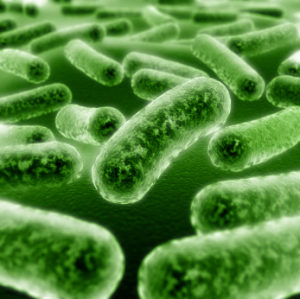 Over the years I've received many questions about vegan versus kimchi that contains seafood. Are the microbes in the kimchi the same?
Over the years I've received many questions about vegan versus kimchi that contains seafood. Are the microbes in the kimchi the same?
One reason this is an important question is because at certain stages of kimchi fermentation the beneficial bacteria Lactobacillus sakei (which treat sinusitis in many people) appears for a time. And during that time when L.sakei is present, dabbing a little kimchi juice in the nostrils helps and treats many individuals with sinusitis. Amazing, yes?
Many people prefer to treat sinusitis with vegan kimchi - which is also my personal preference. I don't want to worry about what is in the seafood used in kimchi. Therefore, it's vegan kimchi for me.
Earlier studies have suggested that even though kimchi is made with cabbage, the L. sakei grows from the surface of raw garlic used in making the kimchi. From the M.A. Zabat et al (2018) study:
"Because kimchi is made without the use of a starter culture, the raw ingredients play a key role in establishing the bacterial community that is responsible for fermenting kimchi (Jung et al., 2011; Lee et al., 2015)".
"Large amounts of garlic are associated with more kimchi-associated LAB [lactic acid bacteria] in the final product (Lee et al., 2015)." [Note: L. sakei is one of the lactic acid bacteria in kimchi]
This is why the 2018 study, which I just read, is so interesting. The researchers found that both vegan (no seafood)and kimchi made with seafood (e.g., fish sauce) contain the same microbes after fermentation. They may have started out with different populations of microbes, but during fermentation the microbes become similar.
"We found that, despite initial differences in microbial composition between vegan and non-vegan kimchi, there was no notable difference in the final products. Ultimately, the microbial community of both vegan and non-vegan kimchi is dominated by Lactobacillaceae and Leuconostocaceae, and lacks the Enterobacteriaceae found in the fish sauce or miso paste."
Well... that's a relief. What kimchi you choose to eat and use as a sinusitis treatment is personal preference. It's all good. And yes, fermented foods such as kimchi are great for the gut microbiome. They increase gut microbial diversity (good!) and reduce inflammation.
From Physics News: Vegan and traditional kimchi have same microbes, study finds
Good news, vegans: A new study finds that kimchi made without fish products has the same type of bacteria as more traditionally made kimchi. That finding suggests that any "probiotic" benefits associated with traditional kimchi could be present in vegan versions as well. ...continue reading "Kimchi Made With Seafood and Vegan Kimchi Contain the Same Microbes"

 Erectile dysfunction is a serious problem for many men, especially as they get older. A
Erectile dysfunction is a serious problem for many men, especially as they get older. A  We have microbiomes all over our bodies. Millions of microbes in communities - for example, the ear, the sinuses, the skin, the gut, and on and on. Women also have a vaginal microbiome. When the microbiome of the vagina gets disrupted, health effects such as bacterial vaginosis (BV) can occur.
We have microbiomes all over our bodies. Millions of microbes in communities - for example, the ear, the sinuses, the skin, the gut, and on and on. Women also have a vaginal microbiome. When the microbiome of the vagina gets disrupted, health effects such as bacterial vaginosis (BV) can occur. Many consumers don't realize it, but some (many?) of the countries that flood the US market with "organic" foods are actually committing fraud. The so-called organic foods are not organic, but are conventionally grown and the documents saying they are organic have been purchased for a price.
Many consumers don't realize it, but some (many?) of the countries that flood the US market with "organic" foods are actually committing fraud. The so-called organic foods are not organic, but are conventionally grown and the documents saying they are organic have been purchased for a price. It turns out that the fabric used to make clothing is doused with all sorts of chemicals. Synthetic fabrics, fabrics dyed with azo dyes, and all fabrics treated to be stain repellant, anti-mold, anti-odor, wrinkle free, easy care, water resistant, flame retardant are the worst. Alden Wicker's
It turns out that the fabric used to make clothing is doused with all sorts of chemicals. Synthetic fabrics, fabrics dyed with azo dyes, and all fabrics treated to be stain repellant, anti-mold, anti-odor, wrinkle free, easy care, water resistant, flame retardant are the worst. Alden Wicker's  We've known for a while that exercise and physical activity lower the risk of developing heart disease. It turns out that a good exercise that many of us do in the course of ordinary life is walking up and down stairs. Yes, that counts!
We've known for a while that exercise and physical activity lower the risk of developing heart disease. It turns out that a good exercise that many of us do in the course of ordinary life is walking up and down stairs. Yes, that counts! Americans take a lot of prescription drugs, so many that it has reached historic highs. 6.3 billion prescriptions were filled in 2020! According to a recent study, it appears that the number of prescription drugs a person takes over the life span will only increase.
Americans take a lot of prescription drugs, so many that it has reached historic highs. 6.3 billion prescriptions were filled in 2020! According to a recent study, it appears that the number of prescription drugs a person takes over the life span will only increase. There is tremendous interest in how to live a long and healthy life. This means trying to avoid getting diseases that so many suffer from as they age, such as diabetes, heart disease, and dementia. What diets are best? What kind of lifestyle?
There is tremendous interest in how to live a long and healthy life. This means trying to avoid getting diseases that so many suffer from as they age, such as diabetes, heart disease, and dementia. What diets are best? What kind of lifestyle? There has been tremendous interest in the past decade over the best diet and lifestyle for aging well and living to a ripe old age. Author Dan Buettner has spent much of the past decade visiting communities around the world where there are many residents who live to 100 years or more, and in good health. He calls these communities blue zones.
There has been tremendous interest in the past decade over the best diet and lifestyle for aging well and living to a ripe old age. Author Dan Buettner has spent much of the past decade visiting communities around the world where there are many residents who live to 100 years or more, and in good health. He calls these communities blue zones. A recent small
A recent small